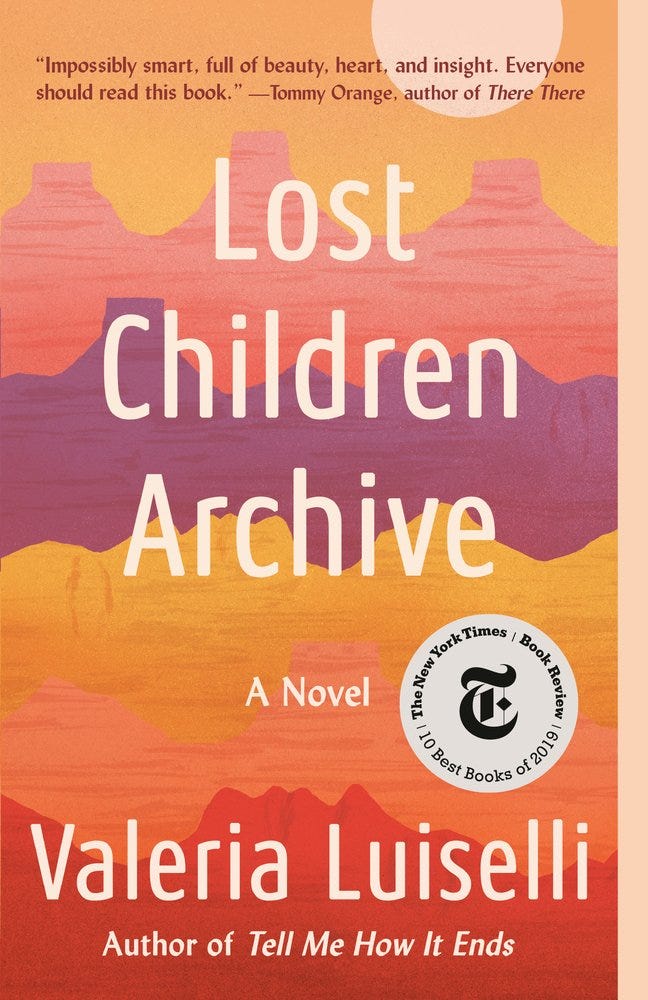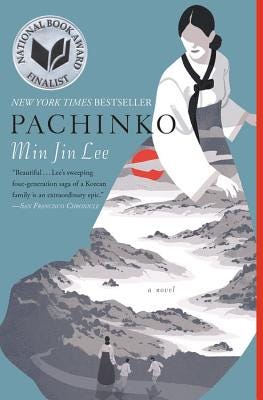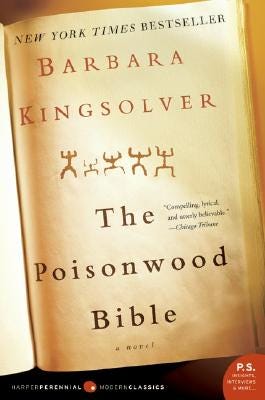You’d be hard-pressed to find a human who likes home as much as I do. On weekends in the pre-COVID times, my sweetheart would constantly find me on the couch with a book and say, “But don’t you want to DO something this weekend?” And I’d say, “I AM doing something.”
So if *I* am feeling cabin fever right now, I have enormous sympathy for you unbridled, extroverted adventurers. As the world is able to emerge in a “new normal,” once I’ve seen and hugged all the friends and family, and possibly had fresh french fries in a bistro-like environment*, the next place I want to go is anywhere new, with new colors, new smells, new languages, new cultures.
Certain books fill this void by viscerally, vividly transporting you to another landscape. So for lockdown week ten million or who even knows, what even is time - here are a few suggestions for great novels that transported me to another place!
*Classic. Russet potatoes, thin, salt. No sweet potato or zucchini, please. Have we not sacrificed enough lo these many months?
Power summary: A single woman in post-partition India builds a new, independent life as a henna artist to the country’s royal and powerful, and then is confronted by people from her past who threaten what she’s built.
What I loved about this novel is that very universal experiences - a woman’s desire for independence and self-creation, the love and binds of family, the dynamics of class and wealth - all come to life in a very specific time and place (1950’s Rajasthan.) The author is so specific in her descriptions of food and fabrics and design and color, it’s just dazzlingly evocative and gorgeous. She even includes recipes at the end.
Power summary: A married couple and their two children (“the boy” and “the girl”) drive cross-country, from New York to Arizona, so the man can begin a project on the Apache, the woman can find immigrant children separated from their mother at the Mexican-American border, and the family can keep from unraveling.
This is on the other end of the spectrum from The Henna Artist in almost every way. The increasingly harsh and deadly landscape. The unsparing look at the echoing American cruelty, from the indigenous genocide to the border separations, and the heartbreak of a crumbling marriage. The author’s challenging literary experimentations, including fragments of photos and poems as well as a final section in which one sentence goes on for 20 pages. But there’s so much powerful beauty in the journey, I feel like I could taste the desert sand in my teeth while reading it.
Also, what’s a “travel fiction” list without a road trip book? Also, also, I hated On the Road. Yeah, I said it.
Power summary: A generational saga of Korean immigrants to Japan, following the family’s experiences and Korean-Japanese cultural friction from the late 1880’s to roughly present day.
For a few months, whenever I asked people what to read next, my friend May would say “Pachinko!” with an increasing!! number of!!! INSISTENT EXCLAMATION POINTS!!!! And I don’t know why it took me so long to get to it, but the TL;DR is she was right. Each new setting, from fishing town to factory to sweet cart to Pachinko parlor so exquisitely comes to life and, at least for me, sheds light on a cultural dynamic that I didn’t know much about (Korean-Japanese tensions and racism).
Power summary: Half-sisters are born in Ghana during the 18th-century slave trade. One marries an Englishman, one is captured and sold into American slavery, and the book follows their descendants from there.
This is structurally similar to Pachinko in its tracing of history, but has the “sliding doors” narrative of how luck and generational experiences leave an indelible mark on individual lives. This is also an *incredible* debut novel, sweeping and truly epic. More like a series of short stories where each time and place is briefly but powerfully sketched out.
Wild card: The Poisonwood Bible
Power summary: an American missionary takes his family to live in 1950’s Belgian Congo, where the entire family must come to terms with religion, race, and colonialism.
I’m always wary of an author writing about a place that’s not their lived experience, (e.g. a white American woman writing about Congo) for a variety of reasons including a fear that the portrait will be superficial and voyeuristic rather than known and lived-in (though she did live there for a year as a child). In this case, though, that otherness is kind of the point of the book, and Barbara Kingsolver is especially gifted when it comes to writing about land and how humans interact with it. Though it’s several decades old, it’s worth reading if you never have.
Please leave *your* suggestions for great “traveling fiction” in the comments (including but not limited to how it’s possible that I don’t have anything set in Europe? Mi dispiace.)
And if you know others in search of a great read, please tell a friend! I promise to be nice!







